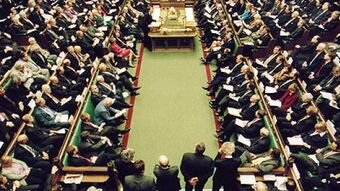Autumn Statement Preview: Tax cuts must focus on struggling families
Marriage and Family
On 23 November, Chancellor of the Exchequer Philip Hammond will have his first opportunity to outline the Government’s plans for the economy. At a time of political and economic flux following Brexit, and with the new Prime Minister’s stated desire to help “just managing” families ringing in his ear, how might we expect the Chancellor to respond, and who indeed are these families?
At an event in Westminster this week, two leading tax experts (and CARE Consultants) called upon the Chancellor to use the opportunity afforded by the Autumn Statement to press pause on the thinking of the Cameron Government. Whichever term you choose – “squeezed middle”, “alarm-clock Britain”, “just managing” – many families are struggling and need help to reduce their tax burden.
Contrary to the received wisdom, it is not necessarily – or indeed, not only – families with very low incomes who are struggling, but also families with relatively high incomes who are struggling to make ends meet. As those gathered were told this week, one of the key reasons for this situation is that the UK income tax system takes no account of family responsibility – i.e. there is little consideration given to the number of mouths which must be filled, only to the basic sum of money involved. The end result is that a couple with two children and an average standard of living may be paying four times as much income tax as a single adult without children, enjoying the same standard of living.
The new Government has inherited a policy to incrementally increase the personal allowance – the income you take home before tax is applied. Whilst popular with many, the policy is both costly (to the tune of £2 billion for the next projected £500 increase) and disproportionately beneficial to those in the top half of the income distribution, many of whom have no family responsibility. This does not seem to sit well with the Prime Minister’s objective to ensure that “Britain…works for everyone”.
CARE believes that any tax cuts which can be afforded must be concentrated on families. We have written to the Prime Minister calling on the Government to re-evaluate the policy it has inherited, and to consider whether increasing the personal allowance is the best way of helping struggling families.
An £11,000 personal allowance is already very generous. In addition, increasing the personal allowance to £12,500 as planned will cost approaching £6 billion and does very little for struggling families. If the Government reverses legislation to increase the allowance to £11,500 next year, and reverses the policy of increasing to £12,500 by 2020, this would release a significant sum which could be invested in the transferable allowance for married couples and perhaps the development of a family tax allowance. If the policy of incrementally increasing the personal allowance is pursued it would seem there will be little capacity to do much for these families for years to come.
You can access slides from this week’s presentation by CARE’s independent tax consultants ‘How can we best help struggling families?’, which includes discussion of options the Chancellor might consider (such as increasing the personal allowance only for families with children), by clicking here.




Share story
Autumn Statement Preview: Tax cuts must focus on struggling families